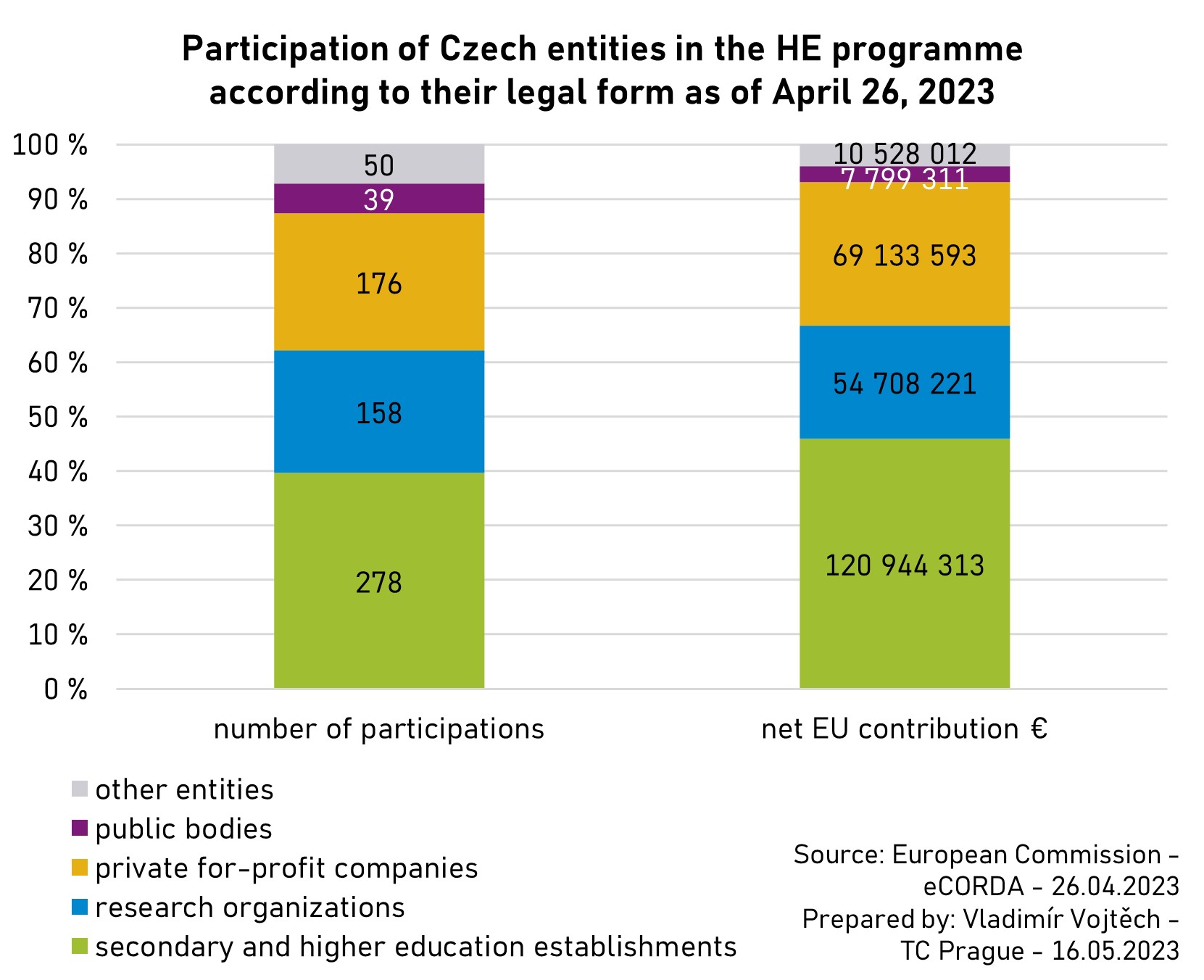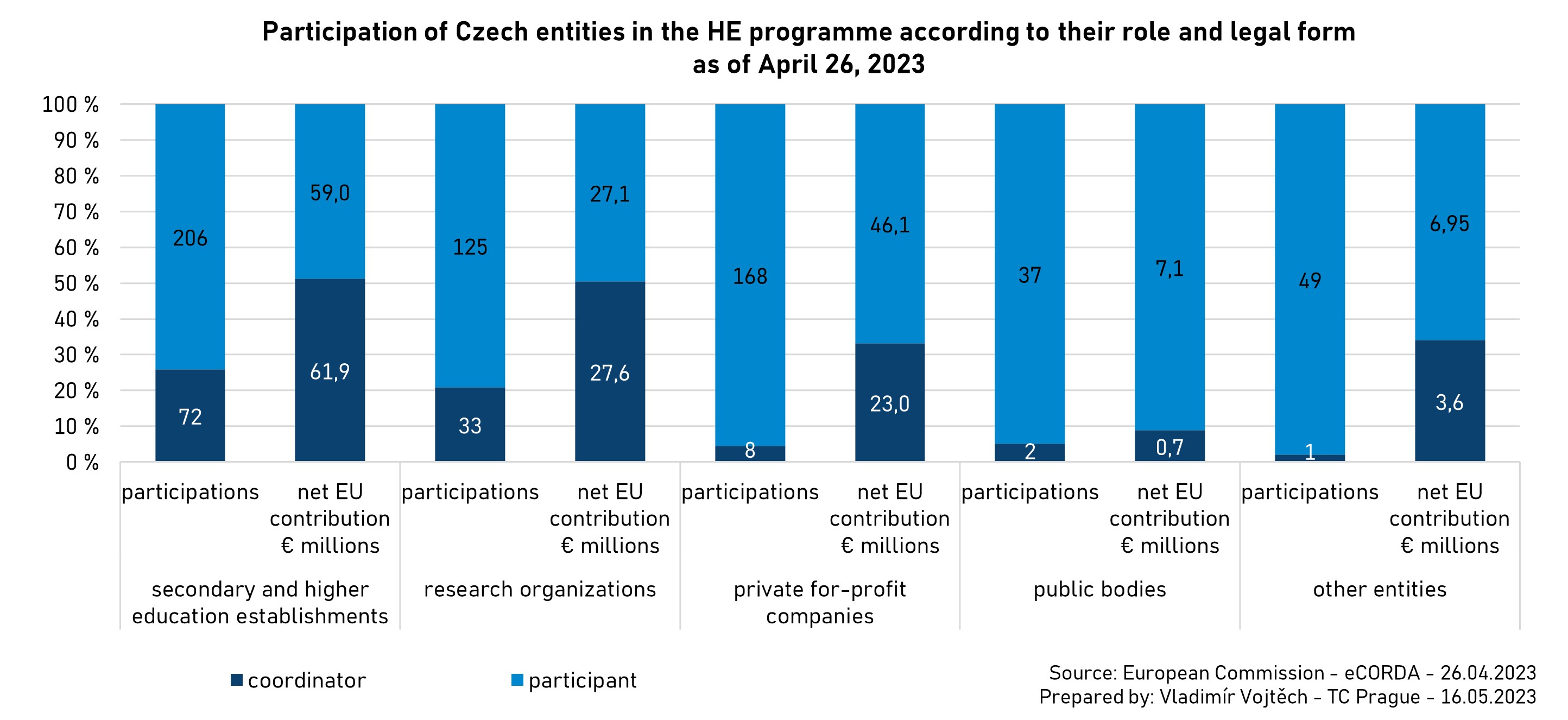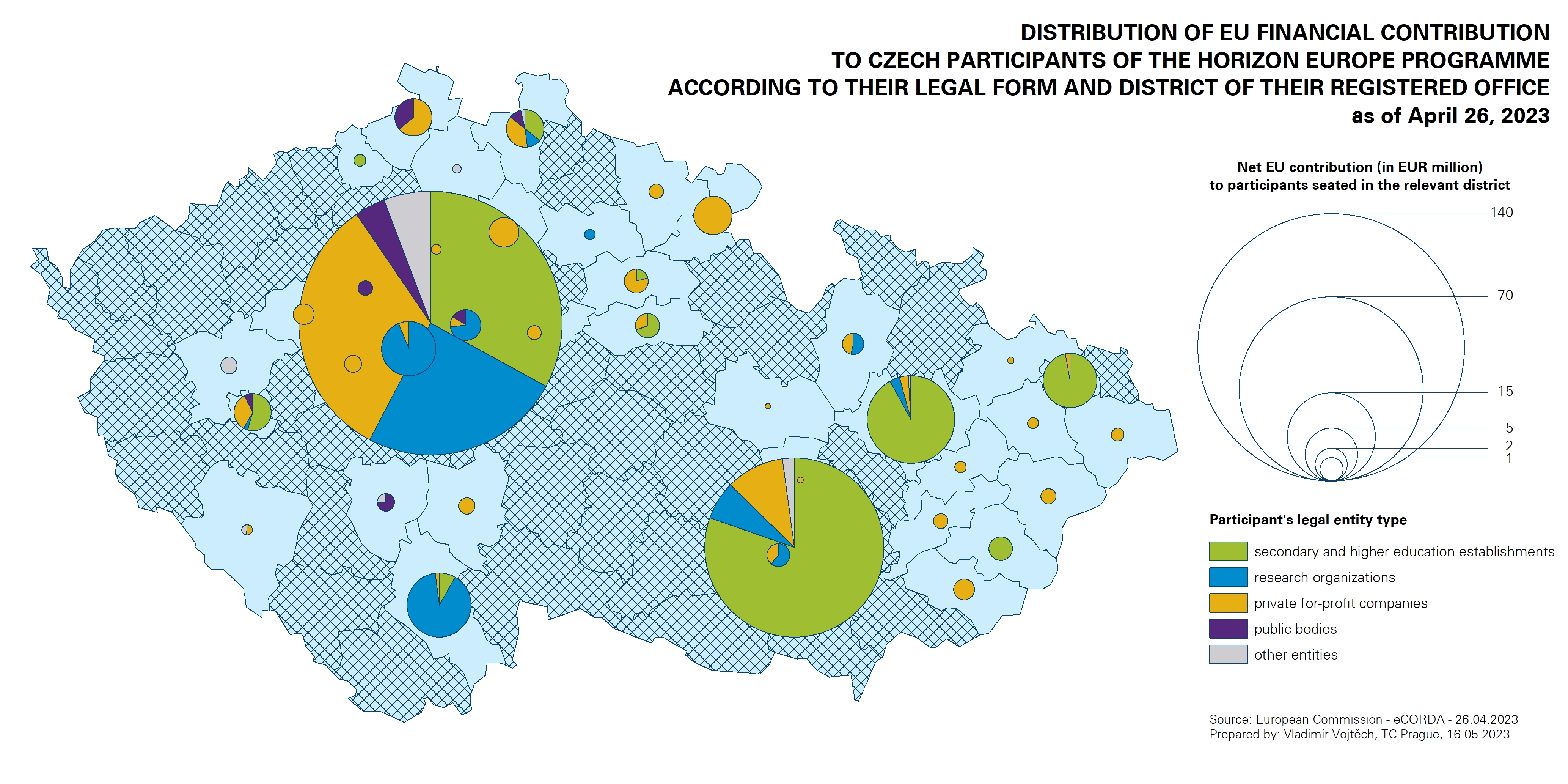Interim Evaluation of Horizon Europe
04/05/2025
The May 8, 2023 post inter alia informed that as of April 26, 2023, entities from the Czech Republic reported 701 participations in the Horizon Europe programme (hereafter "HE") and claimed a net EU contribution of €263 million. The aim of this contribution is to follow up and describe the structure of Czech entities participating in the HE programme from the point of view of their legal form.
Among the Czech entities participating in the HE programme, secondary and higher education establishments prevailed – as of April 26, 2023, they reported 40% of all participations (278) and claimed almost half of the net EU contribution (€121 million). The second most frequently represented group was so called private for-profit companies (i.e. businesses) – they represented a quarter of all participations (176) as well as the net EU contribution (€69 million). Research organizations accounted for one fifth of the number of participations (158) as well as the net EU contribution (€55 million).

If we look at the role of Czech participants, the coordinators were most often represented among universities (72 coordinated projects) and research institutions (33 coordinated projects). Project coordination for Czech higher education establishments and research organizations brings about half of their net EU contribution. Czech enterprises coordinated only 8 projects, however, these projects represented a third of the net EU contribution to enterprises. Interestingly, 4 projects were coordinated by Honeywell International s.r.o., one project each by MIWA Technologies, a.s., NeuronSW SE, EVEKTOR, spol. s.r.o., and COGNITECHNA s.r.o. A more detailed view thus confirms earlier TC Prague analyses published on this website (from December 12, 2022, February 5, 2023 and Fig. 5 in the blog from May 8, 2023). It turns out that project coordination is an important aspect of the Czech Republic's participation in the HE programme.

In terms of participants’ registered offices, six Czech Republic’s districts reported a net EU contribution of more than €5 million. The highest net EU contribution was reported in Prague (€137 million, half of all net EU contribution for Czech participants) and in Brno (€63 million, a quarter of all net EU contribution for Czech participants). This is followed by the districts of Olomouc (€15 million), České Budějovice (€8 million), Praha-západ and Ostrava (€5.8 million each).

From a regional point of view, there are significant differences in the structure of participants, especially if we focus on the representation of businesses. In the above-mentioned 6 districts, where the participants with the largest net EU contribution are based, businesses were represented above average only in Prague, by one third. Thus, two thirds of the Czech companies that claim EU contribution under the HE programme are based in Prague. Among the participants based in Brno, businesses were represented by 11% only. In the other four districts, the representation of enterprises among HE programme participants was even lower. However, it is possible to identify other districts with a specific excellent company – e.g., Argotech a.s. based in Náchod (7 participations with a net EU contribution of €2.9 million), Chart Ferox, a.s. in Děčín (1 participation with a net EU contribution of €1.7 million), Škoda Auto a.s. in Mladá Boleslav (3 participations with a net EU contribution of €1.2 million).
As for higher education establishments, they also represented one third of the Prague participants. On the contrary, in the case of Brno they were represented by 80% and in the case of the Olomouc district and Ostrava by more than 90%. Higher education establishments based in Brno claimed 42% of the EU contribution for Czech higher education establishments participating in the HE programme (i.e. €51 million). The share of higher education establishments based in Prague was 37% – they claimed €45 million from the HE programme.
Résumé: 40% of the Czech participants in the HE programme are higher education establishments; businesses and research organizations are equally represented by 20–25%. Project coordination is an important aspect of the Czech Republic’s participation in the HE programme, bringing domestic higher education establishments and research organizations roughly half of their net EU contribution, and businesses a third. Two-thirds of enterprises participating in the HE programme are seated in Prague. Among higher education establishments, the largest recipients are in Brno, Prague, Olomouc, and Ostrava.
Author: Vladimír Vojtěch, TC Prague, vojtech@tc.cz, 17.05.2023
04/05/2025
01/04/2025
24/02/2025